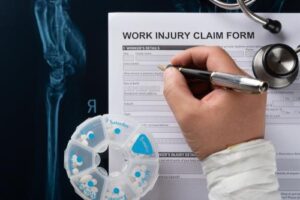
No matter how much you love your job, it is not easy to overcome all the risks that happen in daycare centers and in childcare in general, as accidents will occur. If you are an employee, you also have the right to workers’ compensation as daycare workers in Georgia in many situations. That means that your employer’s workers’ compensation insurance should cover the injuries you suffer on the job. Talk to a Georgia workers’ compensation lawyer at John Foy & Associates today.
Daycare Workers Are Entitled to Workers’ Compensation Claims
As a daycare worker, the determination of qualifying for workers’ compensation coverage is dependent on your employer’s size. Under Georgia law, any employer with at least 3 employees is required to obtain a workers’ compensation insurance policy to protect those employees from injuries on the job. Most often, workers in daycare centers will qualify for this coverage.
That means that if you are hurt on the job, you can file a claim through the employer’s workers’ compensation insurance coverage. Filing a claim means providing the insurance company with evidence of your losses as well as specific insights into what occurred. You should then receive compensation for the losses owed to you.
If you work for a very small daycare or childcare provider or you are not an employee but an independent contractor, this can make it more challenging for you to get the compensation owed to you. In these situations, we strongly urge you to contact our workers’ compensation insurance attorneys to learn more about the specifics. We will fight to help you get any coverage owed to you, even if you are a part-time employee.
Get the strong arm
Most Common Injuries in Daycare Centers for Workers
Though you may spend a lot of your time helping children from bruises and injuries, it is very common for daycare workers to suffer injuries on the job as well. Those injuries can range from minor incidents to large-scale, life-threatening situations. Some of the most common injuries that can happen in many daycare centers include:
- Back and other muscle strains from picking up children or supplies for the job
- Spinal cord damage from slip and fall accidents
- Cluttered floors can also cause traumatic brain injuries if you fall and strike your head in doing so
- Crafts and other activities can cause repetitive motion injuries in some people, and you may be eligible for compensation for those situations
- Knee surgeries and treatment may be necessary if you are hurt on the job through falling or due to lifting
- Open wounds and infection-related injuries may also apply in your situation, especially if a child bites you
Every day at a daycare center is going to be unique, but you should feel safe on the job. If, for any reason, you do not, it becomes critical for you to seek out the legal guidance of an attorney familiar with the workers’ compensation claims process for Georgia in a daycare center. Our attorneys are here to help you throughout this process, especially if you lost your job while on workers’ compensation.
What Benefits You May Be Owed After a Workers’ Comp Injury in a Daycare Center
Daycare centers should be safe locations, but when you suffer an injury while you are working there, it can be critical for you to seek out the help of an attorney to verify your losses and work to prove you are owed fairly. Workers’ compensation benefits are robust enough to cover most of your needs. Every situation is a bit different, but under the state’s laws, you may be owed compensation such as the following, as it applies to your situation:
- Medical benefits: Under the law, you are protected through medical benefits coverage, which means you should receive compensation for any medical services you receive related to the accident from verifiable professionals. This may include coverage for doctor visits, medical treatment, rehabilitation, surgeries, medical devices and equipment, and medications.
- Lost income: If you are unable to work for a length of time due to your work-related accident or injury, the workers’ compensation claim should include your lost income. Under the state’s laws, this amount cannot be more than $725 per week but it is typically two-thirds of the average weekly wages of a person.
- Disability benefits: In situations of serious injury, when full recovery is not possible, you may be able to seek out permanent disability benefits. This means that you will receive agreed-upon compensation for your injuries and losses, including your inability to work.
- Death benefits: Immediate family members may wish to seek out death benefits if the worker who dies did so because of the negligence or recklessness of the employer. The surviving family members may receive death benefits, which are equal to two-thirds of your family members’ weekly wages and cannot be more than $725 per week. Also, note that you may also receive up to $7,500 to cover funeral expenses.
Keep in mind that if you are hurt on the job with long-lasting and permanent injuries, you should have a workers’ compensation attorney by your side to maximize your claim and fight for fair compensation for you. These claims are more complex and yet they can be critical to helping you to move beyond where you are today to a healthy lifestyle. Let our attorneys help you in every way.
Know There Are Limitations on Filing Workers’ Compensation Claims
When you file a claim and agree to it, you release the employer of future damages related to the incident. As a result, you do not want to settle your case too soon, especially if you do not know what your long-term losses will be just yet. Instead, hire an attorney to help you through this legal process.
Set Up a Free Consultation with Our Workers’ Compensation Attorneys for Daycare workers
You put in a lot of hard work and probably deserve far more than you receive. Our Workers’ comp for daycare workers legal services works with you to obtain the compensation you are owed. All you have to do is reach out to John Foy & Associates for guidance and one-on-one support. Call us today to get a free consultation.
404-400-4000 or complete a Free Case Evaluation form





